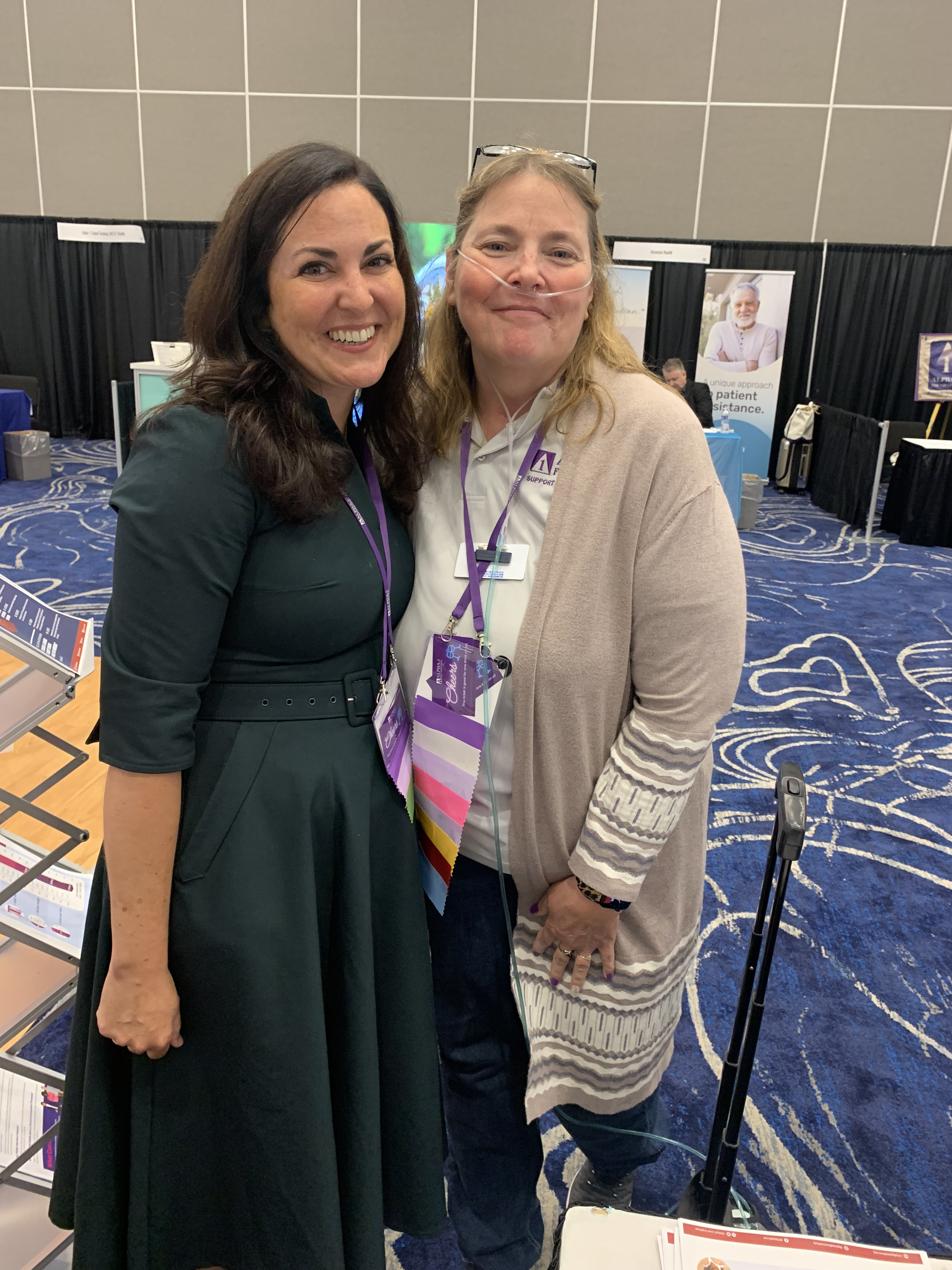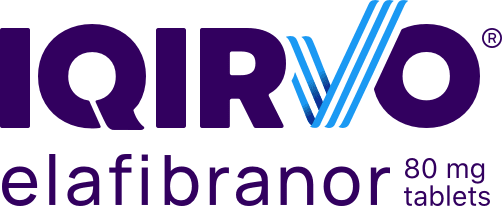
Representing the rare liver disease community at Alpha-1 Foundation 2024 conference
We are honored to have had the opportunity to represent the rare liver diseases community at the Alpha-1 Foundation National Conference in Miami, Florida. The weekend was filled with transformative research and thought-provoking conversations.
Kristin Hatcher, the Pediatric and Rare Liver Diseases program director and an alpha-1 antitrypsin patient, shares: “As an Alpha-1 patient myself, I was overwhelmed by what the Alpha-1 Foundation had put together for their warriors. I met people that I had only known online for years. They gave hope and community to my dad before he lost his battle to Alpha-1 five years ago. I finally got to meet some of them in person and tell them how much they had meant to me over the years.”
“It was also amazing to see the advancements that have happened because of the Alpha-1 Foundation’s relentless efforts. As we are a consortium of over 20 rare liver diseases, it was amazing to share the advancements in other spaces that can be applied across disorders. I cannot wait to take what I learned in the Alpha space and bring it to the larger council!”



The Alpha-1 Foundation is currently championing the John W. Walsh Alpha-1 Home Infusion Act of 2023 (H.R. 4438) Scott Santarella, President and CEO of the Alpha-1 Foundation notes that: “The introduction of The John W. Walsh Home Infusion Act is a huge step for this rare disease community. The Alpha-1 Foundation has worked tirelessly to get this bill introduced so that neither age nor disability will interfere with the continuation of care when transitioning to the Medicare system. The Act will cement the next step forward in improving the lives of Alphas for generations to come, alleviating the burdens that come with a diagnosis of Alpha-1 and the resulting costs. Thank you to Congresswoman Salazar for making this legislation a reality.”
Copayment assistance available for vitamins and supplements for inborn metabolic or genetic bile acid deficiency
The HealthWell Foundation has introduced a new copayment fund to support patients who need vitamins and supplements for managing inborn metabolic or genetic bile acid deficiencies. This initiative offers essential financial assistance, alleviating the burden for those with these rare conditions. Eligible patients, with an annual household income of up to 500 percent of the federal poverty line, can receive up to $1,000 in copayment assistance. For more information or to apply, visit the fund webpage.
Congressmen Don Davis & August Pfluger introduced legislation to improve access to lifesaving medications
Congressmen Don Davis and August Pflger have introduced the Old Drugs New Cures Act, bipartisan legislation to improve access to lifesaving medications that disproportionately benefit low-income Americans who rely on Medicaid, the Children’s Health Insurance Program (CHIP), or Medicare Part D low-income subsidies (LIS). Reformulating existing drugs is an opportunity for innovation to address unmet needs in an efficient and timely manner. New uses for existing drugs have long been supported by the rare disease community, for whom treatment options are highly limited.
The bill addresses an interpretation of federal policy that stifles research and development on reformulations of existing drugs for new uses that would go through the FDA approval process, called the Medicaid line extension. The bill carves out an exemption for priority research drugs from the Medicaid line extension, allowing for a smoother path from drug development to patient access.
Celebrating a new second line therapy option for PBC patients
Ipsen’s IQIRVO (elafibranor) has received approval as a second-line therapy for primary biliary cholangitis (PBC) patients who do not respond to ursodeoxycholic acid (UDCA). This milestone marks a significant advancement, setting the stage for a year filled with initiatives aimed at ensuring the global availability of critical treatment options for PBC. Read more from GLI here.
Ultragenyx gene therapy for Glycogen Storage Disease Type 1a succeeds in late-stage trial
Ultragenyx Pharmaceuticals has published phase 3 results for their DTX401 program for glycogen storage disease type 1a (GSD Ia), with promising results. Patients with GSD 1a must eat regularly (every 1-3 hours during the day and 3-4 hours at night) to maintain blood glucose levels and avoid serious side effects. While cornstarch has been the primary treatment for over 35 years, results from this gene therapy trial have significantly reduced the need for frequent cornstarch intake, maintaining stable glucose levels and achieving critical secondary endpoints.This therapy offers new hope for managing a condition that demands rigorous dietary protocols and leads to severe metabolic complications.
Encouraging outcomes from Mirum’s phase 2 clinical trial of volixibat for PBC and PSC
Mirum Pharmaceuticals has reported encouraging interim results from two phase 2b studies evaluating volixibat for the treatment of pruritus and reduction of serum bile acids in primary biliary cholangitis (PBC) and primary sclerosing cholangitis (PSC).
New study raises concerns about US liver transplant distribution policy
A recently published study has raised concerns about the equity and financial impact of the U.S. liver transplant distribution policy implemented in 2020. The policy stipulates that livers from all deceased donors be offered to the most urgent candidates within 500 nautical miles of the donor’s hospital – while previously, livers were allocated within designated local “service areas” first, then by urgency. While the policy has successfully reduced waitlist mortality, it has also introduced significant financial burdens and worsened disparities among underserved and financially disproportionate communities and entire geographies of the country. This study has highlighted that policies focused on a single goal without appropriate consideration of equity and other unintended consequences can have grave downstream impacts – and for the many rare liver diseases that lack effective treatment, liver transplantation serves as the final line of defense.
Upcoming Events
- July 16, 2024 – Global Genes RAREly Told Stories Workshop
- August 5 – 16, 2024 – Everylife Foundation Rare Across America
- September 9 – 12, 2024 – C-Path’s Premier Global Impact Conference
- September 13 – 16, 2024 – GLI’s Advanced Advocacy Academy (A3)
- September 25 – 28, 2024 – Global Genes Week in RARE
- September 26 – 27, 2024 – RARE Advocacy Summit
- September 28, 2024 – RARE Health Equity Forum
For more information about the Pediatric and Rare Liver Diseases Council or to learn more about joining, please visit our webpage or email pedsrare@globalliver.org.



